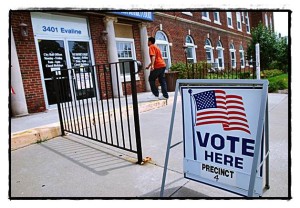AV ballot defendants plead guilty

By Charles Sercombe
Apparently following the lead of a fellow defendant, three Hamtramck men have changed their minds about fighting a felony charge of illegally handling absentee ballots in last year’s primary election.
Salim Ahmed, 50, Armani Asad, 33 and Russell Mohammed, 32, abruptly agreed to plead guilty to one count of illegally handling absentee ballots instead of heading to trial.
They were originally charged with collectively handing in a total of 41 absentee ballots for last year’s primary election from voters who were either not related to them or were from their household.
They had originally planned to fight the charge but backed down after Wayne County Judge Timothy Kenny recently threw out their defense arguments, which included alleging the law itself is unconstitutional and that the city clerk’s office unfairly enforced the law.
At the time The Review went to press their sentencing date was not known.
Their guilty plea follows the path of Mohammed Rahmon, 61, who handed in six ballots for the November election last year from voters not related to him or residents of his house.
He is now pleading guilty to one count of illegally handling absentee ballots. Rahmon will be sentenced on Sept. 16 in Wayne County Circuit Court in front of Judge Kenny. He could be sentenced to a maximum of five years in prison, although a source close to the matter said it’s unlikely he will receive prison time.
Hamtramck City Clerk August Gitschlag, who alerted the Secretary of State’s Office about the matter, said it’s his job to make sure election laws are upheld.
“While I hate to see people get in trouble, my office has a responsibility to report abuse of the election system,” Gitschlag said. “It is only fair to the residents of Hamtramck that the integrity of our elections is protected, and I am glad the State of Michigan took these offenses seriously and pursued the matter.”
In both elections the ballots in question were counted. None of the voters were prosecuted because they had not broken any law by having someone not related to them deliver their ballot.
The 2013 election was historical as far as the use of absentee ballots by voters. For the last couple of decades the usual number of absentee ballots for an election totaled anywhere from 200 to 300.
Last year the Bengali and Yemeni communities flooded the Clerk’s Office with absentee ballot requests. In total, almost 1,000 voters used absentee ballots during the primary and general elections.


trouth
September 24, 2014 at 12:32 pm
Bengali communities brought Bangladeshi political culture in Hamtramck city .